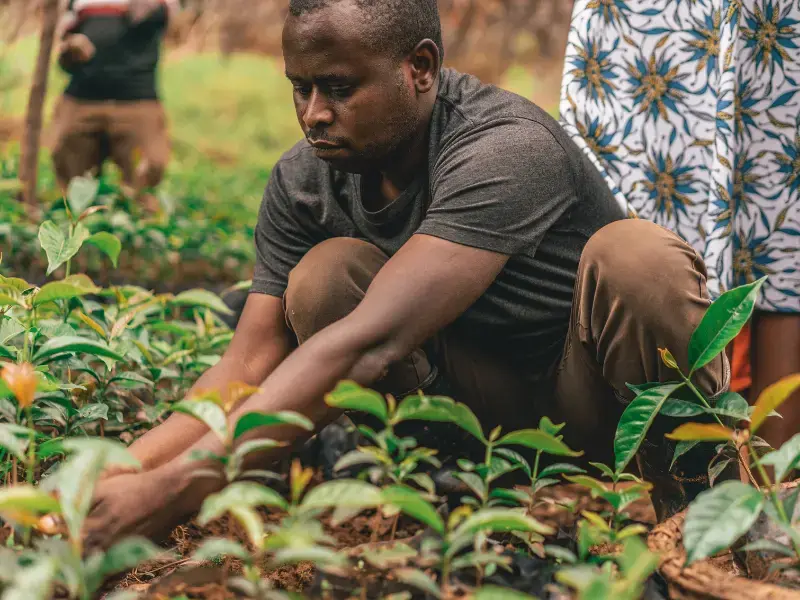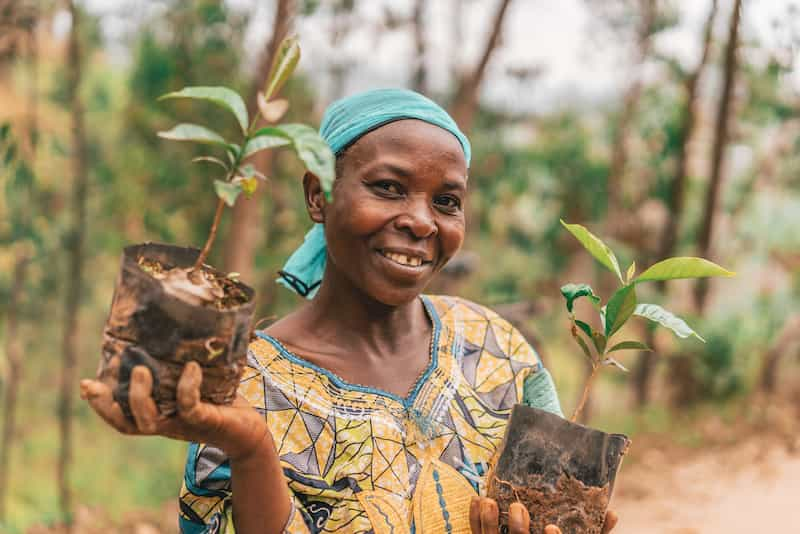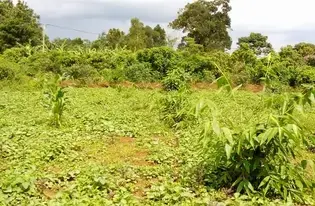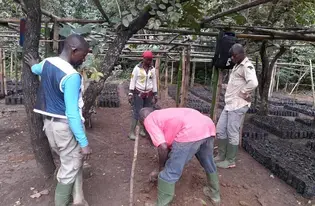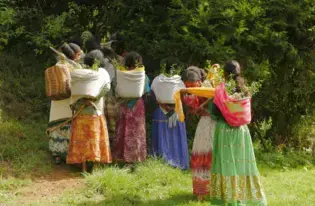In the green hills of Rwanda, coffee farmers are working hard to restore their land while increasing their crop yields. To help them, One Tree Planted partnered with Kula, a nonprofit dedicated to eradicating poverty by empowering women entrepreneurs.
Kula is working alongside the coffee-growing communities of Kayonza, Gakenke, and Nyamasheke to support local leaders and their communities with business and financial planning. Their goal is to empower coffee farmers to build profitable businesses, raise healthy families, and send their children to school. Their 15-month fellowship program provides high-quality farm inputs and intensive, one-on-one training and mentorship for leading farmers. The program not only helps individuals improve their coffee businesses, it also improves their lives and communities as a whole. Kula’s personal development trainings, for example, include courses on family health and nutrition, household action planning, self-esteem and leadership, gender equality, financial literacy, and business development.
With the support they get from One Tree Planted, Kula is providing farmers 120,000 coffee seedlings that they plant and grow into healthy trees. That leads to an increase in the coffee crops and local incomes, helping approximately 300 coffee farmers afford health care and education for themselves and their families.
In partnership with the communities, Kula also established three seedling nurseries in the Eastern, Northern, and Western provinces of Rwanda to house and cultivate coffee tree seedlings. The coffee seedlings are planted, grown, and maintained by the farmers who receive them, and these trees, as they mature, can provide a sustainable income for up to 30 years.
They are also helping farmers grow taller trees of other species to shade the coffee trees and protect them from drought and overexposure to the sun. The result is higher quality coffee and increased income for farmers. These trees also maintain the structure of the soil, which prevents erosion, increases carbon sequestration on farms, and replenishes the land with nutrients that the coffee trees remove as they grow.
Throughout the time it takes the seedlings to grow and mature, farmers receive comprehensive agronomy training so that they have the technical skills and knowledge to maintain their trees in the most beneficial way for their businesses and the environment. Kula’s technique seems to work, too. Through an extensive impact measurement process, Kula found that its most recent fellowship cohort’s coffee yields have increased by 36%. Even more importantly, their incomes are now 49% higher. These numbers are bound to increase over time as these champion farmers continue to care for and restore the land. The future looks bright for these ambitious farmers.
